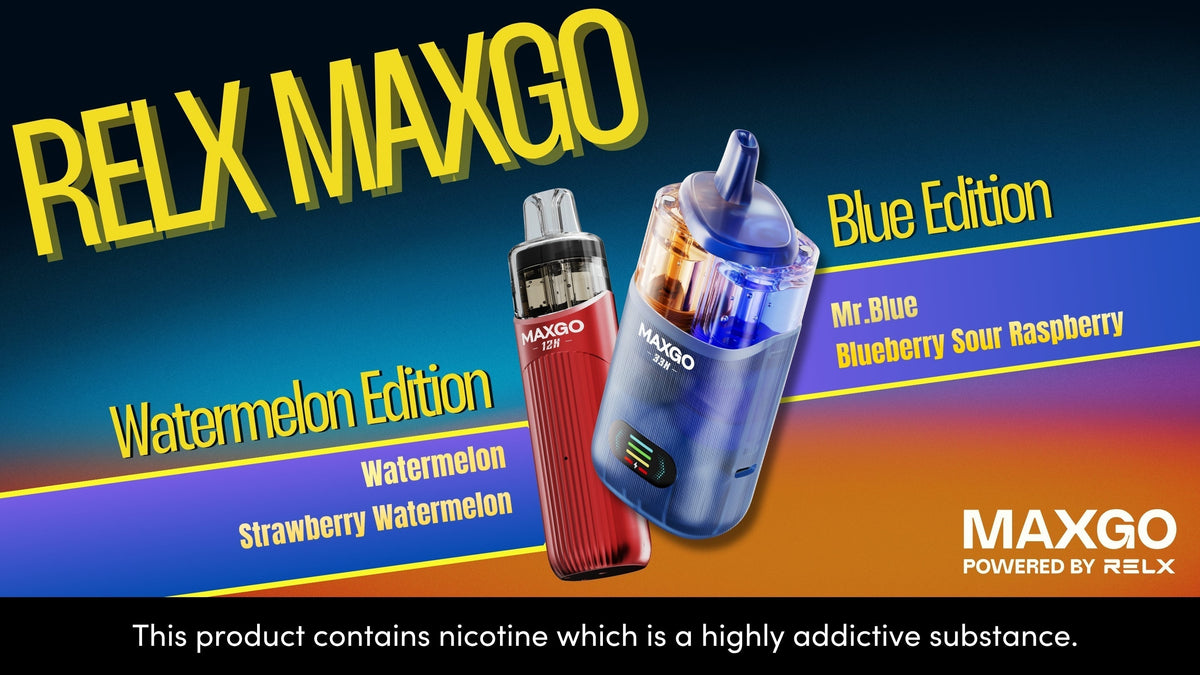Is Vaping Bad for Your Teeth?
Given the nature of an e-cigarette, questions arise about whether there are fewer oral health risks. After all, doesn't more research suggest this is a healthier alternative?
A significant issue cigarette smokers have is problems with their teeth and blood flow. Making the switch to vaping may impact teeth differently.
Is vaping bad for your teeth?
We looked at the research to answer this question. Keep reading to learn about the effects of vaping on your oral health, including how it impacts your teeth and gums and if it causes cavities and gum inflammation.
How Does Vaping Affect Your Oral Health?
You might have questions about your overall oral health if you vape electronic cigarettes (or are considering switching from tobacco to vape juice).
After all, both smoking and vaping pass through your mouth, and the evidence of the adverse effects of smoking on your mouth is well-known.
Regular smokers are not only at risk for carcinogenic and respiratory diseases but also a whole host of detrimental effects. Some examples include tooth decay, bad breath, gum inflammation, more bacteria, and tooth loss.
But it's what is in cigarettes that are responsible for the risks associated with smoking. The chemical makeup of vapes is entirely different (e.g. propylene glycol and vegetable glycerin).
To discover the truth about the negative effect of vaping e-cigarettes on oral health compared to smoking, we must look at what makes vaping distinct.
Can Vaping Cause Gum Disease?
Many of the claims about this popular alternative being better for your mouth come from the fact that it does not cause you to ingest tar as smoking does.
However, vapes can still include nicotine (unless you specifically opt for nicotine-free).
When it comes to gum disease and bleeding gums, nicotine is one of the biggest problems. Also, the heat gives you a dry mouth, which leads to bad breath, gum diseases, and swollen gums.
Unfortunately, both problems are still present when vaping an e-cigarette aerosol. That means vaping can cause gum disease and tooth loss for the same reasons as smoking.
Can Vaping Cause Cavities?
To understand whether vaping can cause cavities, we first need to know how cavities form. It's all about the plaque (excess bacteria), tooth enamel in your mouth, and the acid it can create under certain circumstances.
Those circumstances? Sugar.
With most vape liquids containing high sugar levels, vaping could increase the likelihood of getting bacteria and cavities in your mouth and ruining your healthy smile.
While the sugar-free options are better, it doesn't eliminate the chances of developing cavities. A dry mouth from vaping could also make your teeth vulnerable to inflamed gums, bone loss, and cell death.
Can Vaping Stain Your Teeth Worse Than Smoking Cigarettes?
A study by British American Tobacco found vaping doesn't stain teeth like smoking cigarettes does.
Smoking cigarettes stain your teeth due to the tar, ash, and nicotine—which all lead to bacteria.
While vapes may include nicotine, they don't contain tar and ash.
However, nicotine will still affect your teeth. While it's a clear liquid, it does turn light yellow when it interacts with oxygen.
So, while you may have some risk of light staining on your tooth from vaping, you're at higher risk of stains and permanent damage from cigarettes.
How Does Vaping Compare To Smoking Regarding Oral Health?
Smoking damages oral health and will lead to long-term effects, including DNA damage from smoke, as various studies on smokers and tobacco use demonstrate.
Due to the relative newness of vaping, there is less research on the specific topic. Researchers are still studying the potential long-term negative effects of vaping on your teeth.
Secondly, when studies are done with participants who were smoking a lot but switched to vaping, it's important to note that they already have a long history of nicotine use. This can lead to a skew in the data.
That being said, based on our limited data, it does seem like vaping e-cigarettes is less detrimental to oral health than smoking cigarettes.
This includes plaque levels, infection and gum bleeding.
How To Practice Good Oral Health When Vaping
Vape users concerned about oral health issues can also take action. To maintain your oral hygiene, there are several steps you should take in your day-to-day life to keep your mouth (and your dentist) happy.
Choose Nicotine-Free Options
Nicotine is the main component of vapes that causes oral and tooth problems. If you go for nicotine-free options, you will find your oral health far improved.
Practice Good Oral Hygiene
This should go without saying, but keep up with your regular oral hygiene practices. That means brushing at least twice daily with toothpaste, flossing, and using mouthwash to freshen your saliva. Also, schedule bi-annual dentist appointments so your dentist can identify any small issues before they worsen.
Opt For Sugar-Free Options
Something to aim for outside of vaping, too: consume less sugar! There are many sugar-free vaping options, and choosing those will make cavities far less likely.
Frequently Asked Questions
Should You Brush Your Teeth After Vaping?
The general advice is to wait at least 20 minutes after vaping before brushing your teeth. That's because otherwise, you'll be at risk of enamel erosion and tooth decay.
Do Vapes Make Your Breath Smell?
Unlike the vapour, you might be surprised that vaping can cause bad breath. This is due to the nicotine and how much vaping dries your mouth out.
Final Thoughts
While the research is limited, the data suggest vaping is less detrimental to your teeth than smoking traditional cigarettes.
While more research is still necessary, current studies suggest vaping does come with fewer oral health problems and risks.
If you vape, try to use sugar and nicotine-free options, as this will give you a much higher chance of good oral health and avoiding gum disease. Furthermore, ensure you maintain good oral hygiene practices, such as brushing and flossing your teeth.
For nicotine-free and sugar-free options, you can also shop RELX. Our advanced vaping technology and wide range of e-liquids let you take control of your oral health.
Also in Vape Knowledge

RELX MaxGo Series Showdown: Which Powerhouse Matches Your Vaping Rhythm?

Beyond Disposable: How RELX MAXGO 33K & 12K Redefine Sustainable Vaping Excellence

How Long Until I Can Vape After Wisdom Teeth Removal?
Vaping after wisdom tooth removal is not recommended, as it can cause complications like dry sockets. Patients should wait at least three days before vaping to ensure proper healing and minimize risks associated with the extraction site.













